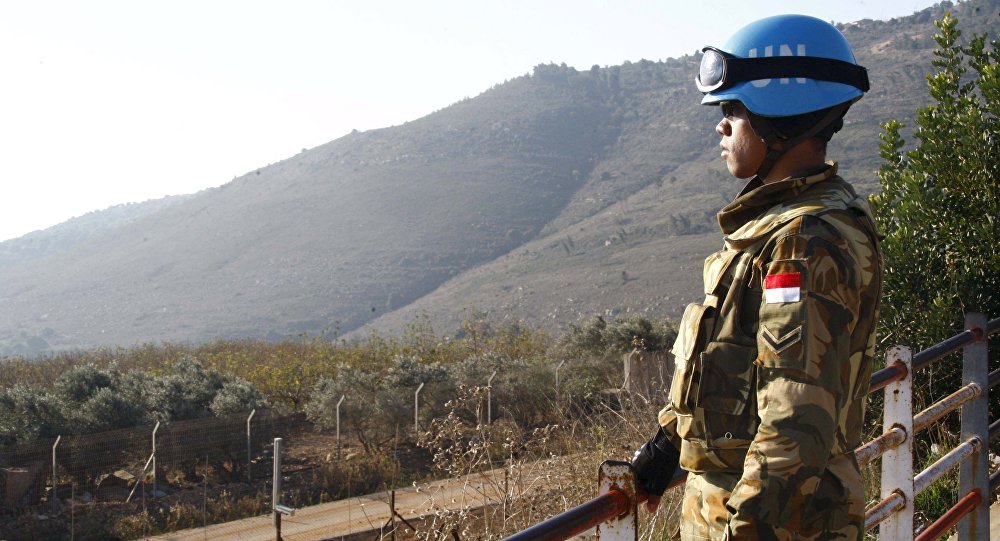The United States demanded on Monday the peacekeeping United Nations Interim Force in Lebanon (UNIFIL) to exert greater efforts to stop the spread of weapons in the south of the country.
US Ambassador to the UN Nikki Haley warned that these arms “are almost entirely in the hands of ‘Hezbollah’ terrorists.”
She made clear in a statement that Washington is seeking “significant improvements” to UNIFIL when the UN Security Council renews its mandate that is due to expire on August 31.
Her statement was in response to a letter to the Security Council from Secretary General Antonio Guterres, saying he intends to look at ways in which UNIFIL could “enhance its efforts.”
He added however that the Lebanese army has the primary responsibility in ensuring that “there are no unauthorized armed personnel, assets or weapons” in the southern area between the Litani River and the UN-drawn Blue Line separating Lebanon and Israel where UNIFIL operates.
“On its part, UNIFIL, in coordination with the Lebanese armed forces, remains determined to act with all means available within its mandate and capabilities on concrete information provided regarding the illegal presence of armed personnel, weapons or infrastructure inside its area of operations,” Guterres said.
Israel has long complained that “Hezbollah” fighters operate freely in the South.
Haley said the US “will continue to raise the threat posed by ‘Hezbollah’ as we seek significant improvements to UNIFIL when the Security Council renews its mandate this month.”
The secretary general said that despite the “long period of relative calm and stability in southern Lebanon and along the Blue Line,” neither Israel nor Lebanon have fulfilled their obligations Security Council resolution 1701 that ended a 33-day war between Israel and the armed group in July 2006.
“Israel must withdraw its forces from Lebanese territory and stop violations of Lebanese airspace,” Guterres said.
Israel carries out almost daily overflights over Lebanon.
“The government of Lebanon must exercise effective authority over all Lebanese territory, prevent hostile actions from its territory, ensure the safety and security of the civilian population, in addition to United Nations personnel, and also ensure the disarmament of all armed groups,” Guterres said.
Ensuring that there are no weapons or “authority” in the south except the Lebanese government and army is vital “in moving from the fragile cessation of hostilities to a permanent ceasefire,” Guterres said.
He urged all parties to use the current relative calm to take “positive steps” toward a permanent cease-fire and long-term solution to the conflict.
Although a ceasefire was reached in 2006, skirmishes with “Hezbollah” have taken place at the Lebanese-Israeli border since the end of the war. Israeli forces have also on several occasions crossed the border and detained Lebanese shepherds, holding them briefly in Israel before releasing them.
